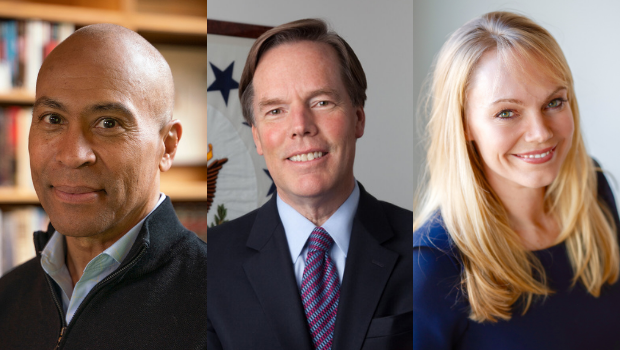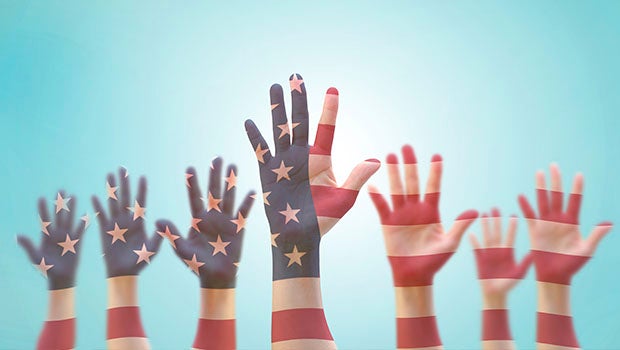
Volunteers participate in the now-annual National Day of Service to honor Dr. Martin Luther King’s legacy of community investment.
As we reflect on the legacy of Dr. Martin Luther King Jr., it is difficult not to wonder whether our nation today would be capable of bringing about the same kind of sweeping change as the civil rights movement did in the 1960s. Dr. King was one of the great leaders of the 20th century. But he would surely be the first to point out that he did not work to overcome the mighty grip of injustice alone. Success required an army of believers rooted in common cause and shared responsibility, willing to make personal sacrifices for a greater purpose.
Dr. King famously spoke of the “drum major instinct” — the desire to be first — that burns deeply within all of us. The drum major instinct is often perilous, he warned, but it can also be harnessed and channeled for good. The civil rights movement succeeded in forcing action because the individuals that comprised it did not view themselves as a collection of individuals, but rather as one organism that would rise or fall together.
Protesters attempting to march from Selma, Alabama, to the state capitol in Montgomery were met with billy clubs and tear gas, yet they maintained the discipline not to fight back because they knew that meeting violence with violence would jeopardize the justice they sought. They were willing to physically sacrifice their own bodies to achieve the objectives of the movement writ large. Each of the 600 marchers had a drum major instinct as all humans do, but they were masterful in harnessing it through a determination to be the best as one marching band for justice and equality.
Who among us in 2014 has such a strong handle on their drum major instinct that they choose to embrace personal sacrifice in order to advance a greater good, recognizing all along that the success of the cause is also their own success, and its failures their failures? The most obvious answer is our military, where less than 1 percent of Americans serve. The other pocket of society where such selflessness exists is in national service.
Today, in Selma, you will find AmeriCorps members tutoring youth during and after school, teaching young people and adults how to use computers, picking up trash, working in food banks, and organizing projects to make their community a better place to live. These drum majors for good exist in communities across the country, but they are even smaller in number than our military. Despite the fact that President Obama signed the 2009 Edward M. Kennedy Serve America Act, which promised the expansion of AmeriCorps to 250,000 positions, there continue to be just 40,000 full-time positions.
So we are left with a disturbing chasm — the roughly 1 percent who serve either in the military or in civilian national service, and the other 99 percent who don’t feel connected to something larger. There are brief moments when most Americans seem to share something of a common consciousness — on September 11, 2001, when a terrible human event presaged over a decade of war. Or on August 29, 2005, when Hurricane Katrina touched down and ultimately led to a decade-long civilian effort to rebuild New Orleans.
But these moments don’t last. When Fallujah fell to al Qaeda-linked militants in recent weeks, how many Americans felt a deep sense of outrage and loss after all our armed forces went through and sacrificed to take control of the city? For most Americans, this development has no direct or perceived impact on their personal lives, so it just becomes another news flash. The only connection to citizenship most Americans in the unconnected 99 percent have is confined to voting and paying taxes. Without a common experience entrenched in a “kind of dangerous unselfishness,” in the words of Dr. King, the answer may well be that something as big as the civil rights movement could not be pulled off today.
Pockets of meaningful citizenship exist, but in order to truly get big things done, all Americans must feel that their lives and their fates, “are caught in an inescapable network of mutuality, tied in a single garment of destiny. Whatever affects one directly, affects all indirectly,” as Dr. King once wrote in “Letter from a Birmingham Jail.” National service is a primary mechanism through which we can foster such a universal assumption of shared responsibility. If we decide as a nation that national service should be part of the American experience and is worth investing in, then the next time we face a challenge as daunting as the one stared down by Dr. King and those in the civil rights movement, we will be strong enough to overcome it.

